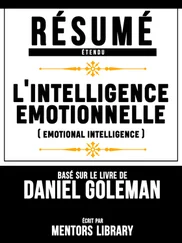Viktor Suvorov - Inside soviet military intelligence
Здесь есть возможность читать онлайн «Viktor Suvorov - Inside soviet military intelligence» весь текст электронной книги совершенно бесплатно (целиком полную версию без сокращений). В некоторых случаях можно слушать аудио, скачать через торрент в формате fb2 и присутствует краткое содержание. Год выпуска: 1984, ISBN: 1984, Жанр: Публицистика, Прочая документальная литература, на английском языке. Описание произведения, (предисловие) а так же отзывы посетителей доступны на портале библиотеки ЛибКат.
- Название:Inside soviet military intelligence
- Автор:
- Жанр:
- Год:1984
- ISBN:0-02-615510-9
- Рейтинг книги:3 / 5. Голосов: 1
-
Избранное:Добавить в избранное
- Отзывы:
-
Ваша оценка:
- 60
- 1
- 2
- 3
- 4
- 5
Inside soviet military intelligence: краткое содержание, описание и аннотация
Предлагаем к чтению аннотацию, описание, краткое содержание или предисловие (зависит от того, что написал сам автор книги «Inside soviet military intelligence»). Если вы не нашли необходимую информацию о книге — напишите в комментариях, мы постараемся отыскать её.
Inside soviet military intelligence — читать онлайн бесплатно полную книгу (весь текст) целиком
Ниже представлен текст книги, разбитый по страницам. Система сохранения места последней прочитанной страницы, позволяет с удобством читать онлайн бесплатно книгу «Inside soviet military intelligence», без необходимости каждый раз заново искать на чём Вы остановились. Поставьте закладку, и сможете в любой момент перейти на страницу, на которой закончили чтение.
Интервал:
Закладка:
There is one last method of recruiting. This is when a foreigner comes in and says, 'Please recruit me.' However strange it may seem, every year hundreds of such people come into Soviet embassies and the same answer awaits them all. This is a diplomatic representation and not an espionage centre. Be so kind as to leave the building or we will call the police.' The police are usually not called but the embassy staff chase the would-be agent out quickly. Even if the GRU (and the KGB, for that matter) is sure that the caller is not a young reporter anxious to publish a sensational article or somebody purporting to sell secret documents but really only selling some nonsense, how can they be sure that the caller is not a police agent who wants to know who in the embassy is concerned with secrets? Thus the answer to all is the same. 'You have got the wrong address. We are not concerned with such things.' This does not mean that it would not be interesting to have a look at what the caller has brought, but long experience has shown that the person who really wants to be recruited and really has something to sell does not say very much but simply hands over the material, together with instructions as to where he can be found, and leaves. He might add a note to the effect that 'this is not all the material I have but only a part, if you are interested.'
Elementary psychological analysis shows that this is perhaps the only way to convince the GRU that they can trust the person. Indeed if a person has decided to entrust his life and the happiness of his family to such dark and unknown personalities, why on earth should he not hand them some papers? By such a gesture he not only draws attention to himself but he gives time for reflection on his proposals and for the necessary checking with higher authorities and checking of the material. However, if the visitor brings papers and documents to the embassy and begins to demand immediate financial reward, this leads one to think, 'If, after careful consideration, he has decided on this step, if he is really ready to entrust his life to us, why does he think that we would deceive him and not return the papers if they were of no use to us? And where is the guarantee that the papers which he has brought are not forgeries? Who would carry the can if we paid him money for papers which afterwards turned out to be forgeries? No, we are not interested in such things.'
That these 'walk-ins' are an extremely unpredictable form of recruitment is perhaps best illustrated by two examples, both of which occurred at the same residency in West Germany. An American sergeant came to one of the Soviet observation missions in West Germany (each of which is a GRU residency), bringing with him the block of a cipher machine used in one of the American bases. The sergeant announced that for a certain sum he could bring a second part of the machine and added that there could only be a deal on condition that the GRU would not subsequently attempt to recruit him. The residency immediately accepted both proposals. The sergeant got his money and an assurance that the GRU would forget all about him immediately after the deal was done.
The cipher machine which was obtained, or more accurately two of its basic blocks, enabled the technical services of the GRU to decipher thousands of American radio communications which had been intercepted earlier but remained undeciphered. They also enabled them to study the principles of cipher work in the American Army and in the armies of its allies and, by exploiting the American principles, to create more complete Soviet examples. What about the sergeant? Of course he was immediately recruited....
On another occasion a couple of years later an American major approached the same Soviet residency proposing to sell an American atomic artillery shell. In proof of his good intentions he handed over free of charge to the residency detailed plans of the atomic depots and instructions on checking procedures and standing orders for work with atomic equipment. These documents by themselves were of great value, although the major's main proposal was of vastly greater interest. The major announced that he would demand a substantial sum for the shell, and imposed the condition that the Soviet side, having studied the shell, must return it after two months. Some days later, the specialists of the GRU information service confirmed the genuineness and very great importance of the documents which had been acquired. The GRU leadership decided to buy the atomic shell and to pay the price demanded for it by the American. A number of the senior officers of the residency were called to Moscow and given a crash course in American atomic technology. A week later, on a dark rainy night in a clearing in the middle of a forest, two motor cars met. In one was the American major, in the other three operational officers. There were two more Soviet cars hidden nearby, ready to intervene if necessary. Many people did without sleep that night. The Soviet Consul dozed by his telephone, in full readiness to come tearing out to the wood and in the name of the Union of Soviet Socialist Republics to defend the military diplomats. On the orders of the Central Committee, many highly placed officials in the Ministry of Foreign Affairs and Tass were also on alert. Of course they did not know what was going on or where, but they were ready to announce to the world that the imperialists had mounted yet another provocation against the Soviet Union. In fact, the Tass and Ministry of Foreign Affairs announcements were already prepared. But everything went according to plan. The American and the three Soviets transferred the shell from one car to the other, and a thorough check was carried out. The operational officers knew beforehand the serial number, the level of radiation, the exact weight and the markings which would identify it as a genuine shell. All was as it should be. The Soviets handed over a briefcase full of banknotes to the American and agreed to meet in two months' time for the return of the shell. Once the shell was in the Soviet car with diplomatic number plates, it was tantamount to being on Soviet territory. The police could stop the car, but they did not have the right to search it nor remove anything from it. Diplomatic immunity is not to be trifled with. In the event nobody stopped the officers, and the car drove peacefully into the courtyard of the Soviet diplomatic mission. Later the shell was transported in a diplomatic container under armed guard to the Soviet Union.
The GRU chief joyfully informed the Central Committee of the successful outcome of the operation. 'Where is the bomb?' asked a voice on the telephone. 'We have it in GRU headquarters.' 'In Moscow!?' 'Yes.'
A long and largely unprintable tirade ensued, whose import was roughly as follows: 'And what happens if there is a little spring inside this shell and it explodes right in the middle of the Soviet capital and turns Moscow into Hiroshima?'
The GRU had worked out the whole operation with the maximum number of precautionary measures and the plan to acquire the shell had been confirmed by all departments from the chief to the general staff up to the Central Committee. However, nobody had foreseen the possibility that there could be a timed device in the shell and that the Central Committee, the Politburo, the KGB, the GRU, all the Ministers and departments of State, the general staff, all the Military Academies, all the principal design bureaux, in a word, everything which constitutes Soviet power, could be instantaneously destroyed. There was no answer. No defence was possible. One shell and the whole system could have gone up, because everybody and everything is controlled from Moscow. The possibility of such an occurrence had only been realised in the Central Committee when the shell was already in Moscow. Instead of the expected decoration, the GRU chief received a 'service incompetence note' - a strong warning that in the future even the most trivial mistake would lead to dismissal.
Читать дальшеИнтервал:
Закладка:
Похожие книги на «Inside soviet military intelligence»
Представляем Вашему вниманию похожие книги на «Inside soviet military intelligence» списком для выбора. Мы отобрали схожую по названию и смыслу литературу в надежде предоставить читателям больше вариантов отыскать новые, интересные, ещё непрочитанные произведения.
Обсуждение, отзывы о книге «Inside soviet military intelligence» и просто собственные мнения читателей. Оставьте ваши комментарии, напишите, что Вы думаете о произведении, его смысле или главных героях. Укажите что конкретно понравилось, а что нет, и почему Вы так считаете.












